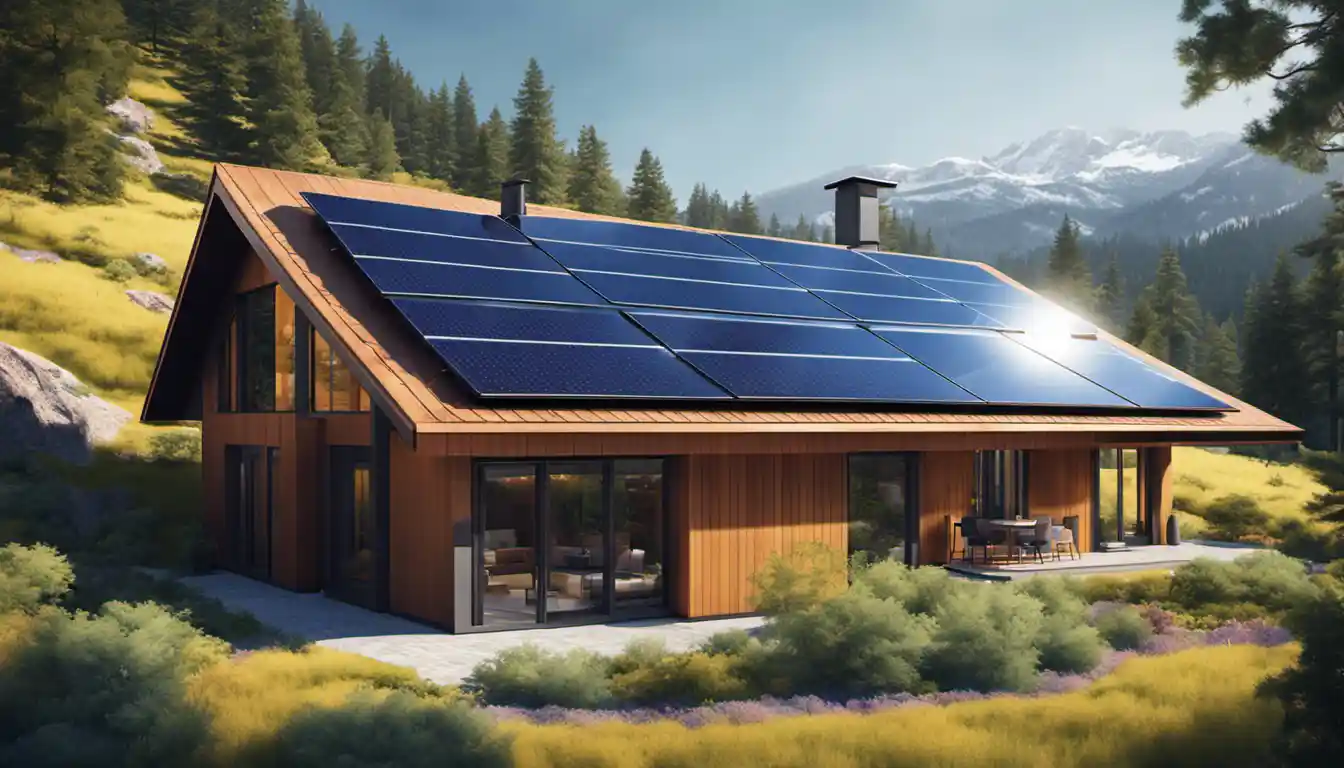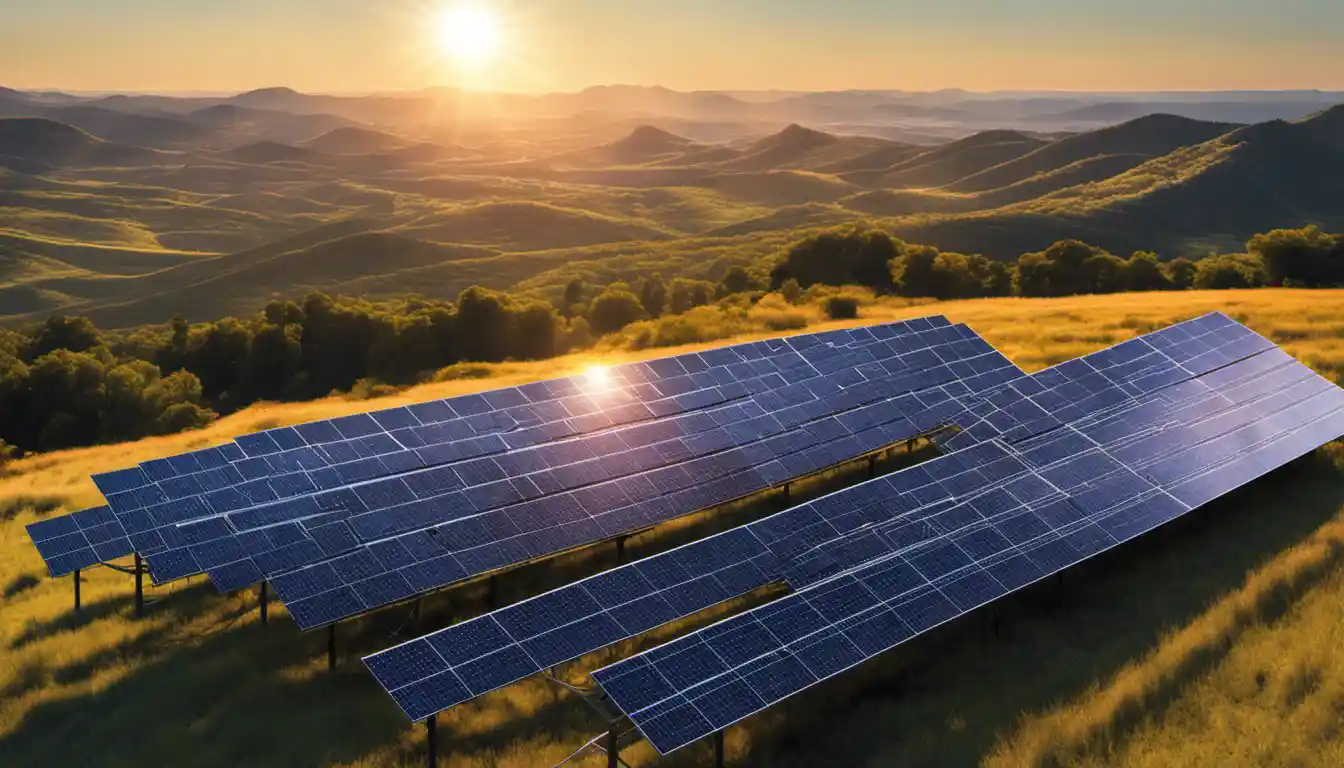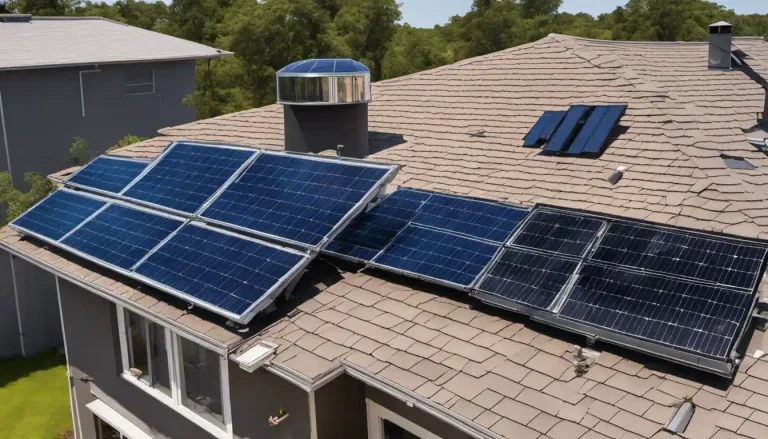Understanding On-Grid and Off-Grid Solar Systems
On-grid solar systems are tied to the local utility grid and it can supply extra power back to the grid. Off-grid solar systems are not connected to the local utility grid and rely on battery storage for excess power, making them completely self-sufficient. Therefore, the fundamental difference lies in their connection (or lack thereof) to the grid and their reliance on battery storage.
Defining On-Grid Solar Systems
On-grid solar systems, also known as grid-tied solar systems, function by synchronizing the system with the electrical grid. In the simplest terms, an on-grid solar system is like a two-way road – where electricity travels from the utility grid to your home and vice versa. This is ideal for locations that have easy access to the utility grid and experience limited power outages.
With an on-grid solar system, during sunny days, your solar panels generate electricity that you can use in real-time, and any surplus power is fed back to the grid. This exchange can save you significant amounts on your utility bill, thanks to a process called net metering.
Defining Off-Grid Solar Systems
Contrastingly, an off-grid solar system operates independently of the local utility grid. Picture an off-grid system as an island operating on its own. A big part of this system includes batteries to store excess power generated during the day, to then be used during the nights or lower production days.
An off-grid solar system comes into its own for remote areas where connection to the electricity grid may be challenging or expensive or if you’re consciously seeking a self-sufficient lifestyle.
Factors Differentiating On-Grid and Off-Grid Solar Systems
There’s more than just black and white when comparing “on grid vs off grid solar system”. Let’s dive deeper into the different shades of this comparison.
Dependence on The Grid: On-Grid and Off-Grid Compared

An on-grid solar system rides on the grid to balance the demand and supply of electricity, whereas an off-grid solar system is entirely independent of it. An analogy I love to tell my clients is to imagine the grid as a communal pantry – you borrow when you need, and you return when you have extra. That’s your on-grid system. As for off-grid, it’s like having your garden and pantry – whatever you consume, you have to grow or make, no outside help!
Utilization of Excess Power: On-Grid vs Off-Grid
I cannot stress enough the importance of having a way to use your excess solar power. With an on-grid system, this excess power feeds back to the grid, earning you credits on your bill.
On the flip side, an off-grid system stores the excess in batteries for future use. I like to compare it to our ancestors storing their harvest for winter – you don’t know what the future holds, so storing the excess power ensures you’ll always have a supply.
Coping with Power Outages: The Difference Between On-Grid and Off-Grid Systems
Today, power outages aren’t as common as they once were, but they still occur. During these times, even though you might own an on-grid solar system, it would shut-down due to safety precautions. But with an off-grid solar system, your stored electricity comes to the rescue!
Cost and Billing Differences of On-Grid vs Off-Grid Solar Systems
Between the two, on-grid solar systems generally have a lower initial cost because they don’t require the battery component. Off-grid systems can have a higher upfront cost, but they can save more in the long run by providing a fully self-sufficient electrical system.
Detailed Analysis of On-Grid and Off-Grid Solar Systems

Pros and Cons of On-Grid Solar System
An on-grid solar system is cost-effective, provides consistent power supply, benefits from net metering, and has lower installation costs. Nevertheless, the system shuts down during power outages and is dependent on grid availability.
Pros and Cons of Off-Grid Solar System
Off-grid solar systems might have higher upfront costs, but their one significant advantage is complete energy independence. They offer exciting possibilities for those considering sustainable lifestyles in remote locations. However, managing power storage and usage requires more active involvement, and battery replacement can add to the system’s lifetime cost.
Hybrid Solar Systems: An Alternative Option
What is a Hybrid Solar System?

A hybrid solar system can be seen as having the best of both worlds – combining the functions of on-grid and off-grid systems. Here’s why you might want to consider including it in your types of solar systems.
How Do Hybrid Solar Systems Work?
With a hybrid system, you’re connected to the grid but also have a battery to store excess power. It saves power for times when the sun isn’t shining and reduces your dependence on the grid, hence it’s like getting the pancakes with the syrups and berries!
Choosing The Right Solar System For Your Needs
Every home is different, and there’s no one-size-fits-all solution when choosing between the types of solar systems.
Factors to Consider When Choosing Between On-Grid and Off-Grid
Expect to reflect on the reliability of your local grid, regularity of power outages, the importance of energy independence to you, and your budget.
Expert Recommendations: On-Grid or Off-Grid?
Having helped countless clients over the last 20 years, I would say the choice between on-grid and off-grid solar system depends on your individual circumstances. But with the information given, I’m confident that you’ll make the right choice for a sustainable future!



